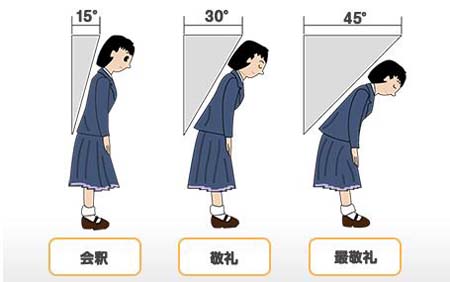禮儀用英語從日常到商務,這篇實用指南讓你溝通得體不尷尬
無論是和外國同事開視頻會議時不知如何開場,還是在國外餐廳點餐時怕說錯話,甚至是接待國際客戶時擔心禮儀不到位——禮儀英語從來不是死記硬背的單詞表,而是讓溝通雙方都舒服的“潤滑劑”。今天這篇文章,我們從日常社交、職場溝通、商務接待到旅行場景,拆解最常用的禮儀英語表達,附具體對話案例和避坑指南,看完就能直接用,幫你擺脫“想說不敢說”“說了怕出錯”的尷尬。
一、日常社交:打招呼、寒暄、告別,這些細節別踩坑
日常和外國人打交道,最容易因為“太隨意”或“太拘謹”鬧誤會。其實禮儀的核心是“讓對方感受到尊重”,英語表達也一樣,分場合調整語氣就對了。

1. 打招呼:正式場合別用“Hey”,熟人也別太敷衍
正式場合(見長輩、客戶、陌生人):
別直接說“Hello”就完事,加上稱呼和禮貌用語會更得體。比如:
“Good morning, Mr. Brown. It's nice to finally meet you in person.”(早上好,布朗先生,很高興終于見到您本人。)
“Excuse me, are you Ms. Lee from the marketing team? I'm John, from sales.”(打擾一下,您是市場部的李女士嗎?我是銷售部的約翰。)
非正式場合(朋友、同事、同齡人):
可以輕松些,但也別太“干”。比如:
“Hey Sarah, long time no see! How's the new job going?”(嘿,薩拉,好久不見!新工作怎么樣?)
“Morning! Did you catch the game last night?”(早啊!昨晚看比賽了嗎?)
避坑指南:
別對不熟的人說“What's up?”(太隨意,像哥們兒間的招呼),也別問“Where are you from?”追問移民背景(可能涉及隱私,換成“What brings you to this city?”更安全)。
2. 拒絕邀請:直接說“No”太生硬,這樣說對方更舒服
朋友約你周末聚會,你有事去不了,直接說“No, I can't”會顯得有點冷漠。試試這樣表達:
“Thanks for inviting me! I'd love to, but I already have plans with my family this weekend. Maybe next time?”(謝謝你邀請我!我很想去,但這周末已經和家人有約了,下次好嗎?)
“That sounds fun, but I have a work deadline to meet. I'll definitely join next time you organize something like this!”(聽起來很棒,但我有個工作截止日期要趕。下次你們再組織類似活動,我一定參加!)
核心邏輯:先感謝說明原因給出“臺階”(比如“下次”),對方會覺得你是“真的有事”,而不是“不想去”。
3. 告別:別說“Bye bye”,根據關系選對表達
正式場合:
“It was a pleasure talking to you. I'll let you know once we confirm the details.”(和您聊天很愉快,細節確認后我會告訴您。)
“Thank you for your time today. Have a safe trip back!”(感謝您今天抽出時間,回程一路平安!)
非正式場合:
“Alright, I gotta go. Let's grab coffee sometime soon!”(好啦,我得走了,改天一起喝咖啡啊!)
“See you around! Text me when you get home.”(回頭見!到家了給我發消息。)
二、職場溝通:郵件、會議、求助,專業感從細節來
職場中,禮儀英語不僅是“禮貌”,更是“專業度”的體現。尤其是郵件和會議,一句話沒說對,可能影響同事對你的印象,甚至耽誤工作。
1. 郵件:開頭結尾別“模板化”,細節見誠意
寫英文郵件最容易犯的錯是“開頭永遠是Hope you are well,結尾永遠是Best regards”,其實根據和對方的熟悉度、郵件目的,可以更靈活。
給不熟的人/客戶發首封郵件:
開頭先介紹自己+說明來意,別讓對方猜你是誰。比如:
“Dear Mr. Wilson,
My name is Lisa Wang, and I'm the project manager at ABC Company. We recently learned about your team's work on sustainable packaging, and I'd love to discuss potential collaboration opportunities.
...”(威爾遜先生您好,我是ABC公司的項目經理Lisa王。我們最近了解到貴團隊在可持續包裝方面的工作,希望能探討潛在的合作機會。)
催進度別太“硬”:
同事沒交材料,直接說“Please send me the report ASAP”會顯得像命令。試試:
“Hi Mike,
Just following up on the marketing report we discussed last week. Could you let me know if you need any help with it? No rush, but it would be great to have it by Friday if possible.
Thanks,
Lisa”(邁克你好,跟進一下我們上周討論的市場報告。如果你需要幫忙的話隨時告訴我?不著急,但如果能在周五前給我就太好了。)
結尾別只說“Best regards”:
想表達感謝時用“Thanks again for your help!”;想強調后續行動用“I'll keep you updated.”;和熟同事可以用“Cheers!”(比“Best regards”更輕松)。
2. 會議:打斷、提問、總結,這些表達讓你更得體
開會時想插話、提問,直接說“I have a question”或“Wait, I disagree”會顯得突兀。試試這些“緩沖句”:
打斷別人時:
“Sorry to interrupt, but could you clarify that last point? I want to make sure I understand.”(抱歉打斷一下,能解釋一下最后一點嗎?我想確認自己理解對了。)
“If I could just jump in here—we actually discussed this in the last meeting, and the conclusion was...”(如果我能插一句的話——我們上次會議其實討論過這個,結論是……)
提問時:
別直接說“Why did you do that?”(像質問),換成:
“Could you share more about the reasoning behind this decision?”(能多說說這個決定背后的考慮嗎?)
“I'm curious about the timeline—do we have a rough schedule for the next steps?”(我對時間線有點好奇,下一步有大致的計劃嗎?)
總結時:
會議結束前主動總結,顯得你認真聽了:
“Just to recap, we agreed to finalize the budget by Wednesday, and Sam will send the draft to the team tomorrow. Is that right?”(總結一下,我們同意周三前確定預算,山姆明天會把草案發給團隊,對嗎?)
3. 求助:別只說“Help me”,加上“細節”和“感謝”
同事幫你是情分,不是本分。用英語求助時,說清楚“你需要什么”“為什么需要”“對方能得到什么反饋”,對方會更愿意幫你。比如:
“Hi Emma,
I'm working on the client presentation and noticed you did a similar one last quarter. Would you mind sharing your slides with me? I just want to see how you structured the market analysis section—no need to explain everything, but it would save me a lot of time. I'll send you the final version once I'm done, in case you want to see!
Thanks so much,
Tom”(艾瑪你好,我在準備客戶演示,注意到你上季度做過類似的。能分享一下你的幻燈片嗎?我只想看看市場分析部分的結構——不用解釋太多,但會幫我節省很多時間。我做完后會發終稿給你,如果你想看看的話!)
三、商務接待:從接機到送別,讓客戶感受到“被重視”
接待外國客戶時,禮儀英語的關鍵是“周到”——提前考慮對方可能需要什么,用語言傳遞“我們準備充分,很重視你”的信號。
1. 接機:別只會說“Welcome”,細節拉近距離
客戶下飛機,你在機場舉著牌子等他。見面第一句可以說:
“Mr. Parker? Welcome to Shanghai! Did you have a good flight? The drive to the hotel is about 40 minutes, so you can rest a bit in the car.”(帕克先生嗎?歡迎來到上海!旅途還順利嗎?去酒店車程大概40分鐘,你可以在車里休息一下。)
如果客戶看起來很累,可以主動說:“Do you need to stop for coffee on the way? Or would you prefer to go straight to the hotel to check in first?”(路上需要停一下喝杯咖啡嗎?還是直接去酒店辦理入住?)
2. 宴請:點餐、敬酒、聊話題,避免“冷場”或“踩雷”
商務宴請時,英語表達既要禮貌,又要避免涉及敏感話題(比如政治、薪水、年齡)。
點餐時:
別直接把菜單推給客戶說“Order whatever you want”,可以主動推薦:
“The Peking duck here is very popular—would you like to try it? Or do you have any dietary restrictions I should know about?”(這里的北京烤鴨很受歡迎,想試試嗎?或者你有什么飲食禁忌需要注意?)
如果客戶猶豫,可以說:“Maybe we can order a few dishes to share? That way you can try more flavors.”(要不我們點幾個菜一起分享?這樣你能多嘗幾種口味。)
敬酒時:
外國客戶可能不習慣“干杯”,可以說:
“I'd like to propose a toast—to our partnership and future success!”(我提議干杯——為我們的合作和未來的成功!)
或者更輕松些:“Here's to a productive meeting tomorrow!”(為明天富有成效的會議干杯!)
聊話題:
安全話題:天氣(“How do you like the weather in Shanghai compared to London?”)、旅行(“Have you had a chance to visit any places here before?”)、美食(“What's your favorite Chinese dish so far?”)。
3. 送別:除了“Goodbye”,加上“后續行動”更專業
客戶離開時,除了告別,最好提一下接下來的安排,讓對方覺得“合作有進展”。比如:
“Thank you for coming all the way to meet us, Mr. Parker. I'll send the meeting minutes to you by the end of today, and we can schedule the next call early next week. Have a safe flight back!”(帕克先生,感謝你專程過來見我們。我今天會把會議紀要發給你,下周初我們可以安排下一次通話。回程一路平安!)
四、旅行場景:餐廳、酒店、問路,不做“尷尬游客”
出國旅行時,一句禮貌的英語不僅能避免麻煩,還可能讓當地人對你更友好。這些高頻場景的表達,提前記下來準沒錯。
1. 餐廳:點餐、催菜、結賬,別用“Give me...”
點餐:
服務員過來時,別說“Give me a menu”,用“Could I have a menu, please?”(能給我一份菜單嗎?)
需要特殊要求時:“Could I get the steak medium-rare, please? And no mushrooms, thanks.”(牛排要三分熟,不要蘑菇,謝謝。)
催菜:
等了半小時菜還沒上,別生氣地說“Why is the food taking so long?”,可以說:“Excuse me, could you check on our order? We've been waiting for about 30 minutes.”(打擾一下,能幫我們看一下訂單嗎?我們已經等了大概30分鐘了。)
結賬:
“Could we get the bill, please?”(能給我們結賬嗎?)比“Pay”更禮貌。如果需要分開付:“Could we split the bill, please?”(能分開結賬嗎?)
2. 酒店:入住、提需求、退房,清晰表達少折騰
入住:
“Hi, I have a reservation under the name Alex Chen. The booking was for a double room for three nights.”(你好,我有預訂,名字是Alex陳,訂了三晚的雙人房。)
提需求:
房間空調壞了:“Excuse me, the air conditioning in my room isn't working. Could someone come to check it, please?”(打擾一下,我房間的空調壞了,能派人來看看嗎?)
需要叫醒服務:“Could I request a wake-up call at 7:30 tomorrow morning, please?”(能幫我訂明天早上7:30的叫醒服務嗎?)
退房:
“Hi, I'd like to check out. Could you print the receipt for me, please?”(你好,我要退房,能幫我打印收據嗎?)
3. 問路:別只說“Where is...?”,加上“禮貌開頭”
問路時,先加一句“Excuse me”會顯得更客氣:
“Excuse me, could you tell me how to get to the nearest subway station? Is it walking distance?”(打擾一下,能告訴我最近的地鐵站怎么走嗎?走路能到嗎?)
如果對方說的路線你沒聽懂,別不好意思:“Sorry, I didn't catch that. Could you say it again more slowly?”(抱歉,我沒聽清,能說慢一點嗎?)
禮儀英語的核心,從來不是“說得有多流利”,而是“讓對方感受到尊重和善意”。哪怕只是在說“Thank you”時加上真誠的微笑,在拒絕時多說一句“Thanks for asking”,都能讓溝通更順暢。下次遇到涉外場景,別慌,回想今天這些表達,大膽開口——得體的禮儀,永遠比完美的語法更重要。
尊重原創文章,轉載請注明出處與鏈接:http://www.abtbt.com.cn/yyxx/227363.html,違者必究!

